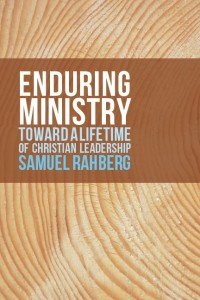An Expanded Experience of Incarnation
Incarnation—God in the flesh—is central to the Christian witness. The pandemic has challenged our assumptions about what community looks like and what tools we use to nurture human connection. The heart of the matter is nothing less than Incarnation. What does it mean to face this moment in an embodied way, to sense the invitations, and to practice Incarnation?
New Meeting: Practicing Retreats and Holy Listening in a Zoom World
The bar has been raised, and is rising even higher, as we all scramble to improve our use of web conferencing, live streaming, and video editing. As spiritual directors and retreat leaders, we are eager to pool our learning about accompanying others online so that we can all exercise our listening and leading as effectively as these times demand.
Life IS a School for Discernment
Life has become a crash course in discernment. The learning objectives? Acknowledge pressures at a pandemic scale, turn to witness, and practice life.
Spilling Water Meditation
This meditation practices a less anxious presence, from the sights and sounds of a water glass tipping to experiencing connection with a much wider world.
The Awakening: What Is the Gift of Shadow?
This reflection continues an exploration of the unknown in our inner worlds, sometimes called the shadow. Part 1 took up the question “What Is Shadow?” while parts 2 and 3 follow the questions “What Do We Do with Shadow?” and “What Is the Gift of Shadow?”
The Summons: What Do We Do With Shadow?
This reflection continues an exploration of the unknown in our inner worlds, sometimes called the shadow. Part 1 took up the question “What Is Shadow?” while parts 2 and 3 follow the questions “What Do We Do with Shadow?” and “What Is the Gift of Shadow?”
The Unknown: What Is Shadow?
This reflection kicks off a three-part exploration of the unknown in our inner worlds, sometimes called the shadow. Part 1 takes up the question “What Is Shadow?” while parts 2 and 3 follow the questions “What Do We Do with Shadow?” and “What Is the Gift of Shadow?”
A Tool for Attending to the Inner Dimensions of Leadership
The everyday and lasting pressures of ministry can take their toll on Christian leaders—and venting only helps so much. Thankfully, what we can learn from the practice of spiritual direction is that Christian leaders are not alone in their struggles and that there are ways to notice and reflect upon our experiences more constructively. God is present and stirring. The sustainability of our callings depends on our paying attention.
Touchstones: Experiences in Nature as Encounters with the Divine
These days I need the woods. I need to steal away from everyday pressures and quagmires to wander and wonder within creation. While I cannot quite wholly explain why this feels so natural and important, I am coming to appreciate that experiences in nature restore my perspective. In the woods I encounter touchstones, signs of what is true and genuine that teach me how to remember and recognize the presence of the divine elsewhere.
Spiritual Direction: What Are You Talking About?
When it comes to spiritual direction, do you ever feel like everyone else is talking about a book you haven’t read? I have grown to appreciate spiritual direction so much that I don’t want others to feel left out. With this short essay I want to help those who are unfamiliar with the practice find a place to begin.
Poem: Ice Break
On the far edge of winter
a frozen lake quakes and groans
as a warm sunrise hints at Spring.
Faith & Leadership: Befriending Your Limits
Part of effective Christian leadership is learning when to reach beyond and when to accept our own limitations. A spiritual director offers some thoughts and advice on how to do that. This article was first published on 7 Mar 2017 in Faith & Leadership from Leadership Education at Duke Divinity. Editor's note: This reflection is adapted from Rahberg’s book, “Enduring Ministry: Toward a Lifetime of Christian Leadership.”
Enduring Ministry Reflection, Celebrating the Release
This past week I found myself right at home in Mark 6. The disciples are sent out two by two, preaching, casting out demons, and anointing the sick. After a time they return to Jesus and tell “him all that they had done and taught” (6:30, NRSV) Jesus replies, "Come away by yourselves to a deserted place all by yourselves and rest a while" (31). Sometimes that's exactly what we want to hear, the expectation we have as we climb into the boat with Jesus. Listen for what really happens: “Now many saw them going and recognized them, and they hurried there on foot from all the towns and arrived ahead of them” (33). The disciples did not get the deserted place they wanted. What the disciples do get is a boat ride with Jesus between crowds. This book and this evening is about the boat ride. What happens, what needs to happen when we're sent out, when we're serving, and when we're on the boat journeying with Christ on the way to the next crowd so that we get off the boat and continue serving like Jesus? “As he went ashore, he saw a great crowd; and he had compassion for them, because they were like sheep without a shepherd; and he began to teach them many things” (34). Whatever happened on that boat, Jesus sets foot ashore and demonstrates an enduring ministry.
Boundaries: A Matter of Freedom and Life
I find it easier to practice boundaries within the context of spiritual direction than I do the flow of life and responsibilities outside of those relationships. This became clear to me after re-reading Boundaries by psychologists Henry Cloud and John Townsend [Zondervan, 1992]. Nearly twenty years after first reading this best seller, I still surprise myself some days by being clear and relaxed as a spiritual director, only to lose my sense of groundedness moments later in another setting. What can we learn from spiritual direction relationships that helps us keep practicing boundaries in others?
Poem: Seoul Vespers
When pilgrims hear only music in sounds that mean something to those at home, there is no choice but to feel the way into prayer. One can watch for the right time to rise, to bow, to sit. One can listen for the lilt of psalms, hymns and readings. One might even glean a Christo, Maria or Amen, as clear young voices chant in single tones or one side after the other makes balance. Feeling all this, they move beyond listening. Like the winged choir perched on Asian pines nearby, pilgrim hearts draw in close, chirping into the silence, unable to resist the song.
Reader's Poem: Living With Contradiction
It is curiously liberating to realize that tensions become life-giving. Christ walked in constant awareness of the world’s pain and beauty. I must accept myself in contradictions and contradictions in me. In Christ all things are held together. Recognize Christ’s love. Let yourself receive that love.
Good Zeal (Rule of Benedict, 72)
Benedict of Nursia (ca. 480-547) is one of the voices from Christian tradition who continues to help us understand what it means to walk together toward Christ the Light. The grand finale to the Rule of St. Benedict (RB) comes in chapter 72 on the topic of what Benedict calls "good zeal". (Bit of trivia: scholars agree that RB 73, the actual last chapter, functions as a bibliography). Having reached the bookend of all the wisdom collected in previous chapters, we might rightly wonder about Benedict's punch line for this vision of life in Christian community.
Praying Grace-Fully
From biblical times through the modern day, Christians have asserted that the practice of prayer is essential to the life of discipleship. Unfortunately, prayer can also become a source of shame and inadequacy. Who among us doesn’t feel that our prayer life isn’t what it should be?
Poem: Ceaseless Prayer
What is the point of discipleship
if not to live truthfully
in the Divine Presence,
to make our way, ready for thein-breaking of God’s grace?
Like desert monks we saturate
ourselves with Scripture
that we, too, might dwell in the Word
and put on the mind of Christ.
We who practice
receiving God’s touch
and waiting through its absence
cannot resist meeting joys and challenges
with more and more transparency.
Centeredness wells up
as biblical words and symbols
begin grounding priorities and decisions
in something other than mere ego.
The fullness of Christian life
spills over, then,
into convictions and actions
that serve the greatest good.
Call it prayer, call it lectio,
but do not let it be confined
to quiet moments before dawn.
Befriending Your Limits
By the time you find yourself drawn to the phrase "befriending your limits," you have likely built a home between a mountain and a shoreline. The desire to seek new perspective may well be an invitation that involves some element of discomfort . . . and a dash of hope. This peculiar mix suggests to me that God is at work and that it is time to pay attention. We cannot help but respond with honesty.



















